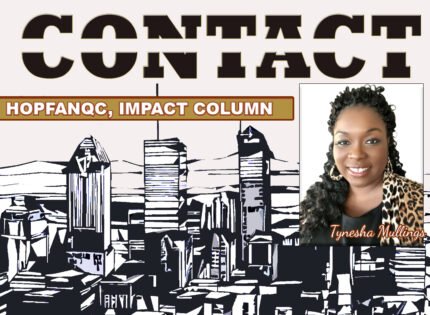In the struggle long before the charter of human rights institutionalized
On December 10, the Quebec Human Rights Commission will parade 40 Quebecers who will receive the 40th Anniversary of the Charter of Human Rights and Freedoms Award.
The honor is extended to these individuals because of their commitment “to the daily struggle for the advancement of human rights.”
Look among the group and you will not find one English-speaking Black person.
A situation that should provoke outrage for all who have been observing the long history of struggle this community has been engaged in to assert both its human and civil rights in this society.
Long before that Charter of Human Rights and Freedoms became entrenched within the legal framework of this province, members of the Black community have been on the frontlines of adversity in a society that is yet to come to terms with racism.
As such, Blacks have had to confront injustices in all quarters of life, from housing to education to employment to its relations with the police. Sadly the English-speaking sector has had to bear the brunt of the abuses, mostly because of their longer history in and around Montreal.
The challenge of confronting these adversities has debilitated the community by driving away many of our young and our best and brightest, but it never prevented
stalwart after stalwart from standing on our behalf by acting defiant and speaking truth to authority.
Individuals such as Judge Juanita Westmoreland Traoré, Dan Philip, head of the Black Coalition of Quebec, Carl Whittaker, a former community leader and Dr. Dorothy Wills, a retired Vanier College professor and long-serving community advocate and politician, from standing out for their tireless effort in the cause of human rights over the past 40 years.
So too does Fo Niemi, executive director of the Committee For Research Action Against Racism, who over the past two decades has been a thundering voice on behalf of an endless lineup of young Blacks who have faced abuses at the hands of police around Montreal and beyond.
All have been standing for the cause of human and civil rights from their various stations in life and doing so with courage, determination and most of all dignity.
And in so doing, they have made invaluable contributions in making Montreal and Quebec better places for other minorities and all Quebecers.
How then can anyone look past the efforts of Dan Philip who for more than four decades has offered his voice and his stance on behalf of all who have felt the sting of abuse and injustice, regardless of color or creed, in handing out this symbolic award.
Of course, it can only be the continuing attempts to sideline English-speaking Blacks, whose presence and contributions to this province extends way beyond the arrival of many of the Nouveau Quebecers who are today making decisions about who should or should not be recognized in the arena of human rights.
Without denigrating the efforts and contributions of the brave men and women who have been chosen to receive the 40th Anniversary of the Charter of Human Rights and Freedoms Award, all of Quebec should share the shame of totally ignoring the presence of English-speaking Blacks in the arena of human rights.
Egbert Gaye













